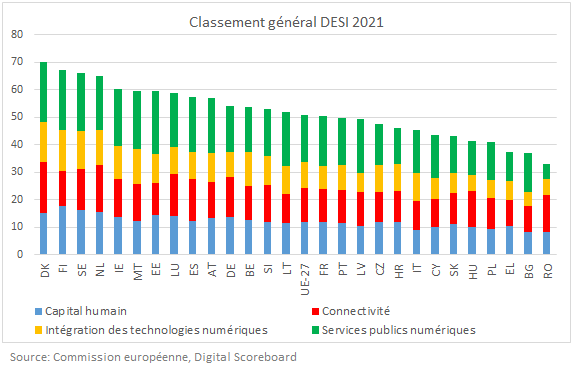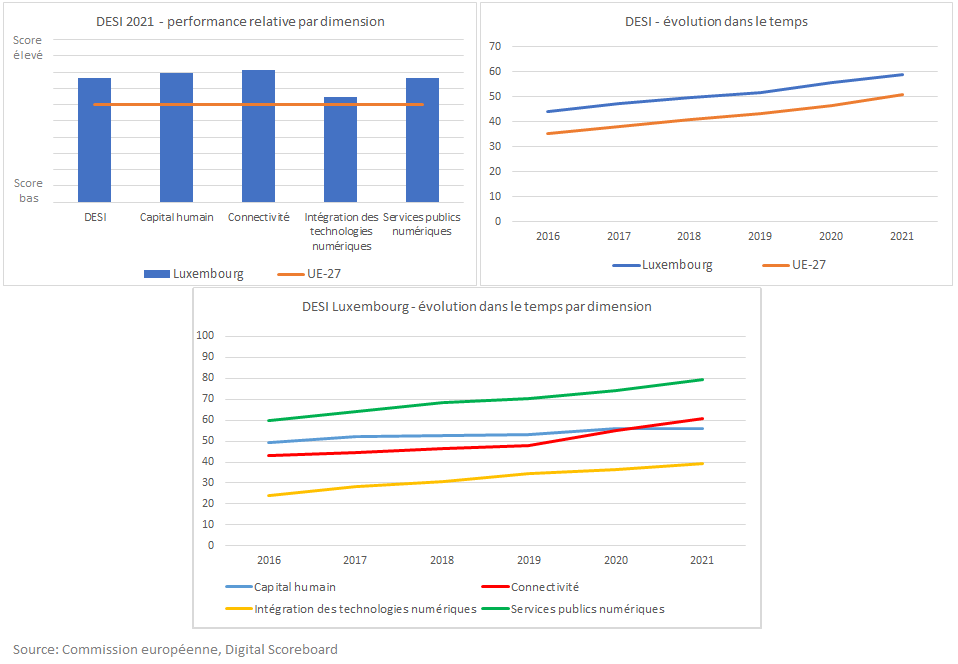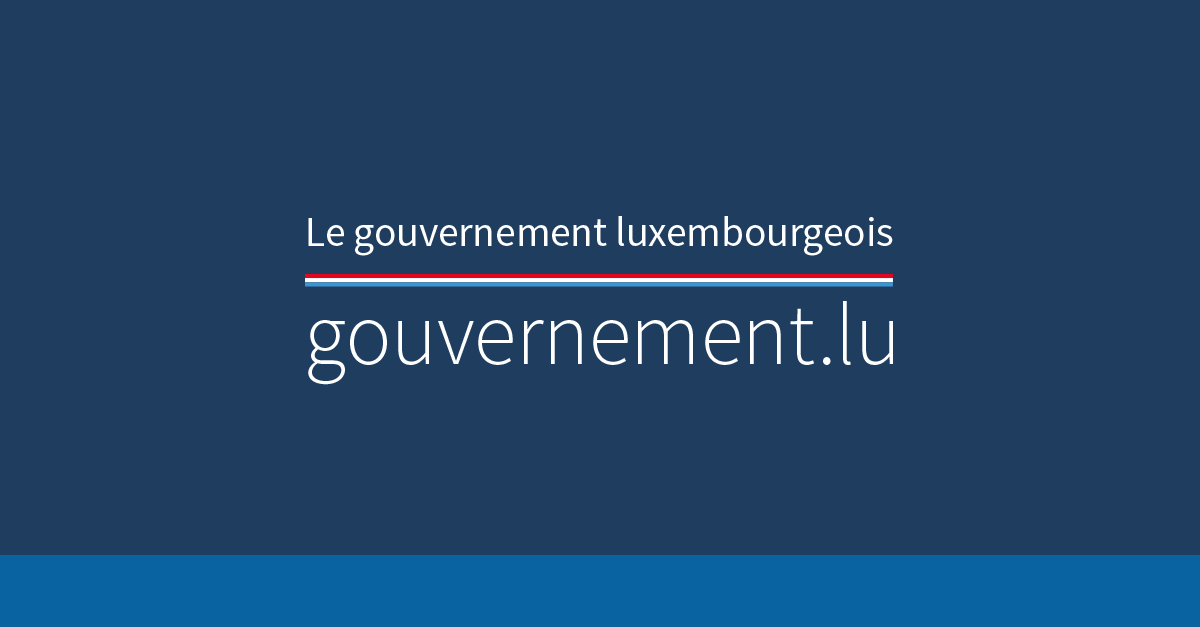General
In November 2021, the European Commission released a new edition of its Annual Report on the Digital Economy and Society: ” Digital Economy and Society Index (DESI) ”. DESI is an integrated index that tracks the progress of member countries in the digital arena. The general report is supplemented by country profiles that help member states identify priority areas of activity.
The European Commission has made a number of changes to the 2021 edition of the DESI to align the index with the four main axes and to improve the methodology and adapt the latest technologies in line with the objectives of the “digital compass”. Political developments. Therefore, the results of DESI 2021 cannot be directly compared with previous versions. However, previous years’ DESI scores and rankings have been recalculated to allow analysis of the performance of countries.
DESI is now organized into four interrelated dimensions that are evaluated using 33 individual indicators. Each measure has the same weight in DESI.
- Human Capital (Digital Skills, ICT Specialization)
- Connectivity (coverage and acceptance of fixed and mobile broadband connections, broadband pricing)
- Integration of digital technologies (digital intensity of SMEs, corporate digital technologies, e-commerce)
- Digital public services (electronic governance)
General classification
In the DESI 2021 general rankings, Denmark (70.1 / 100) is ahead of Finland (67.1), Sweden (66.1), the Netherlands (65.1) and Ireland (60.3). Luxembourg is in eighth placeE Position (59.0), Germany is 11thE (54.1), Belgium12E (53.7), France 15E (50,6).

Luxembourg performances
In detail, Luxembourg’s performance (ranking / score) on the four dimensions of DESI 2021 is:
- Human capital (6E / 56.2): Luxembourg is above the EU average for digital skills indicators and ICT specialization indicators.
- Connectivity (4E / 61.0): Luxembourg excels in fixed and mobile broadband reception and coverage. In terms of broadband pricing, Luxembourg’s score is close to the EU average. The country is also well prepared for 5G, and the commercial launch of 5G services took place in 2020.
- Integration of Digital Technologies (14E / 39.4): Luxembourg’s performance exceeds the European average in the percentage of minimum digital intensity SMEs. When it comes to the use of digital technologies in companies, Luxembourg achieves good results in terms of electronic transfer of information, social networks, big data and artificial intelligence. Electronic invoicing, on the other hand, is not widespread in Luxembourg, and few SMEs sell their wares and services online.
- Digital Utilities (11E / 79.4): Luxembourg has made significant progress in the field of digital public services. The results are excellent in terms of the public services available online for businesses and individuals. The level of online interaction between public authorities and the public is average. On the other hand, Luxembourg’s score is well below the European average of open data.
Overall, Luxembourg surpasses the European average in every dimension of DESI 2021. Analysis of the evolution of the general index shows that Luxembourg’s score is higher than the EU overall and that both scores are more or less developing in parallel. In more detail, Luxembourg made continuous progress in four dimensions of DESI between 2016 and 2021.

The European Commission attests to the fact that Luxembourg is doing well in terms of human capital. Despite the shortage of ICT specialists, Luxembourg is implementing a number of strategies and initiatives aimed at strengthening the digital capabilities of the population. Luxembourg achieves very good results in terms of connectivity. The country is almost completely covered by fast broadband networks and enjoys excellent coverage of very high capacity networks. In addition, broadband services are slightly more affordable than average in the EU. Luxembourg is also well prepared for 5G. Regarding the integration of digital technologies, the European Commission notes that Luxembourg has made great strides in embracing digital innovations in line with its desire to transform into a data-based economy. The European Commission refers to Luxembourg’s commitment at the European level, in particular its partnership with European Joint Performance Computing (EuroHPC) and the signing agreement to establish the European Blockchain Partnership. Finally, the European Commission reports that Luxembourg has made significant strides in the field of digital public service, enabling DESI to significantly improve its score on this scale.

Prone to fits of apathy. Unable to type with boxing gloves on. Internet advocate. Avid travel enthusiast. Entrepreneur. Music expert.



